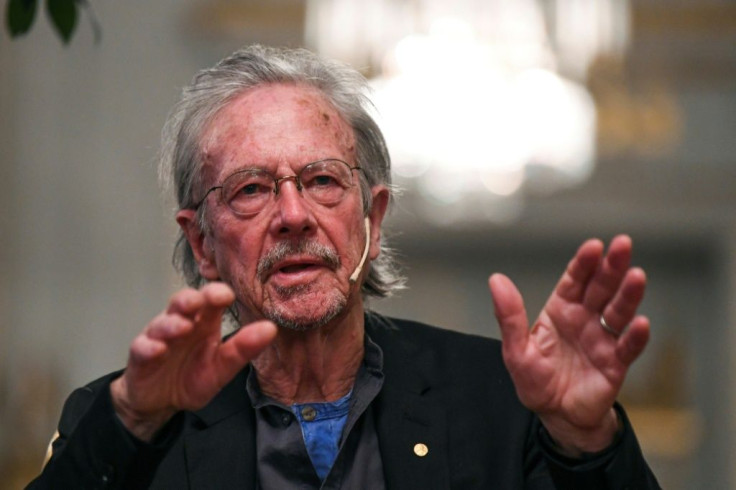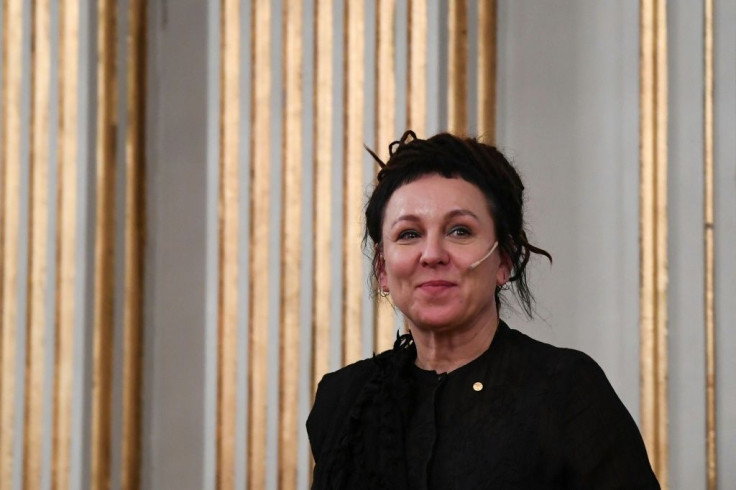Writer Handke Steers Clear Of Controversy In Nobel Lecture

Austrian writer Peter Handke devoted his Nobel Academy speech to literary questions Saturday, avoiding the controversy over his pro-Serbian views that led Kosovo to announce a boycott of next week's awards ceremony.
The winner of the 2019 Nobel Prize for Literature discussed the role of memories in his work, in a speech ahead of the awards ceremony on Tuesday.
No journalists were allowed to attend the event. A source close to the organisers told AFP that this was for "security reasons".
But the speech was broadcast live online by the Nobel committee.
Earlier Saturday, Kosovo's Foreign Minister Behgjet Pacolli said his country's envoy to Sweden would not attend the awards ceremony in Stockholm on Tuesday, in protest at Handke's support for Serbs in the 1990s wars in former Yugoslavia.
The Swedish Academy's pick for the 2019 prize, announced in October, triggered outrage in the Balkans and beyond because of Handke's admiration for the late Serbian leader Slobodan Milosevic.
The award particularly stung in ethnic-Albanian majority Kosovo, a Serbian province until it broke away after the 1998-99 war in which Serbia carried out mass atrocities.
Two Nobel committee members resigned over the selection earlier this week and a member of the Swedish academy, historian and writer Peter Englund, said he would boycott the ceremony.
Pacoli, in a Facebook post, said the boycott was "due to controversial Nobel Prize winner Peter Handke, a friend and supporter of Milosevic's policy".
He was referring to Milosevic's targeting of ethnic Albanians that led to a 1999 NATO bombing campaign against Serbia.

Handke spoke at the funeral of Milosevic, who died in a prison cell in The Hague in 2006 while on trial for genocide, war crimes and crimes against humanity.
Before his death, Milosevic had wanted Handke to testify in his defence.
In the 1990s, Handke emerged as one of the few European intellectuals who publicly supported Serbs during the bloody collapse of the former Yugoslavia that claimed more than 130,000 lives.
The author was accused of minimising Serb war crimes in his 1997 book "A Journey to the Rivers: Justice for Serbia".
Handke returned Germany's prestigious Buechner prize in 1999 in protest at NATO's bombing of Serbia, which eventually led to Milosevic's forces leaving Kosovo and ultimately Pristina's declaration of independence in 2008.
Asked on Friday about whether he had changed his mind about what happened in the Balkans in the 1990s, Handke said only: "I like literature, not opinions. I hate opinions."
The literature prize is still struggling to recover from a rape scandal that resulted in no award being given last year.
To make up for that omission, the 2018 winner of the Nobel Prize for Literature was also announced this year.
In her Nobel lecture Saturday, Polish writer Olga Tokarczuk spoke about the idea of fiction being a kind of truth, but also about her sense of what was wrong with the world.
"The world is dying, and we are failing to notice," she warned.
© Copyright AFP 2024. All rights reserved.




















